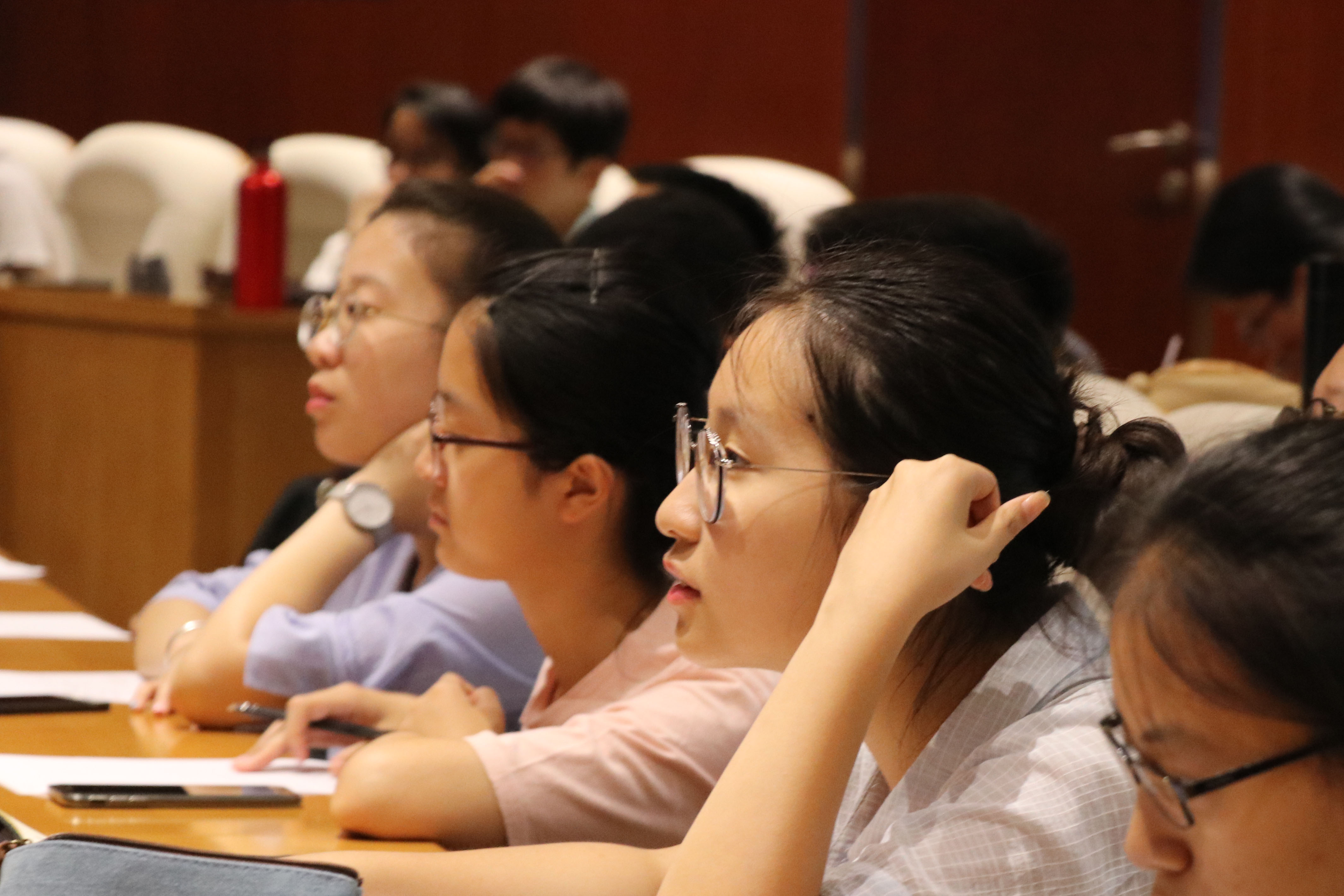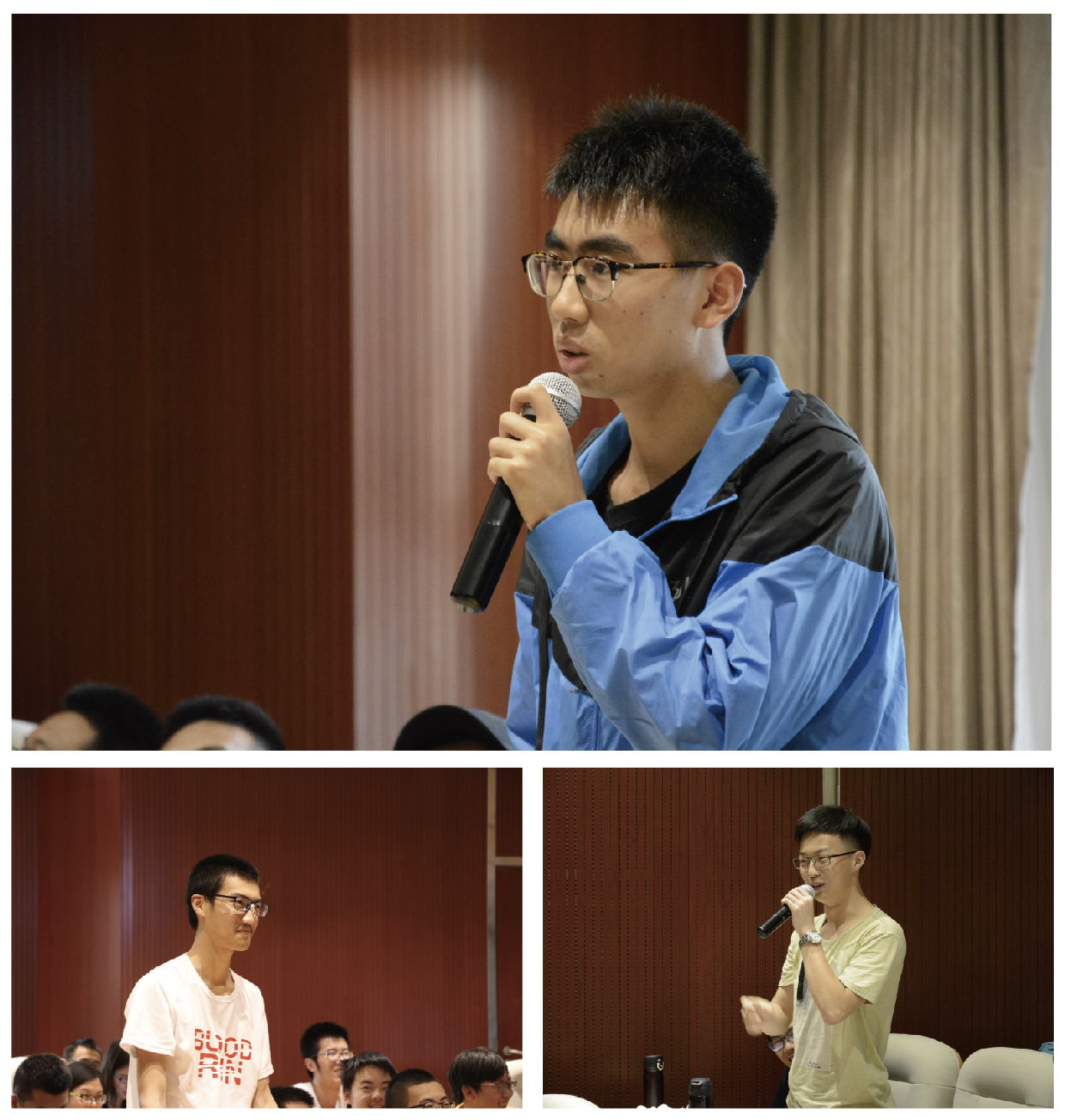On June 13, faculty and students of the School of Mathematics, Tianjin University gathered at the lecture hall at the Peiyangyuan Campus of Tianjin University to attend an academic report presented by Professor Xi Nanhua, an Academician of the Chinese Academy of Sciences. The lecture was chaired by Sun Xiaotao, Dean of the School of Mathematics.
The lecture began with a true story of Professor Xi. He told listeners many foreign scholars always use “I try to understand something……”to introduce their research interests, however, he uses the word “study” to introduce his academics. He said after that, he has realized the gap between him and other scholars, and he also has a better understand of modesty. Therefore, he decided to share the thinking “To Understand Mathematics” with the scholars and students in mathematics learning.
“As we all known, mathematics is a basic discipline which we learned when we were children, however, few people really understand it.” Professor Xi said. Therefore, he elaborated four questions “How to Understand Mathematics?”, “How to Get the Thinking Mode of Mathematics?”, “What is the basis to Mathematics?” and “What questions are valuable questions?” for inspiring listeners thinking.

He entered the topic from two aspects of “Numbers” and “Shapes”. With regard to the Numbers, Professor Xi reviewed the history of the prime number theorem prove, and then illustrated the core issue of Langlands Problem is to prove that all mode L functions are self-defense functions. Meanwhile, he also talked about the problem of counting. He elaborated the importance of introducing concepts into mathematical research by the examples of Cantor Continuum Hypothesis. Starting from the line segments and triangles, he extended the classical polyhedron Euler formula to Gauss-Bonnet formula to reveal the essence of “Shapes”. After that, he introduced Wiles proving Fermat’s last Theorem, which is a model of perfect combination of “Numbers” and “Shapes”.

Professor Xi introduced many famous nouns and theorems in the history of mathematics development such as Goldbach’s Conjecture, Riemann Conjecture, Hilbert’s 23 Problems and etc. When talking about the Fields Medal and the Millennium mathematical puzzle(Millennium Prize Problems), he joked with grace: “It is a good way to make money in mathematics research.” He told the students not to be too impulsive in the face of setbacks in love, so that the development of mathematical research would not be impaired by talking about the story of the death of Galois, one of the founders of group theory.
Students ask some questions about the connection between artificial intelligence and mathematics, and Professor Xi believed that artificial intelligence is a comprehensive issue, and the key mathematical issue is algorithm. When asked about the relationship between classical literature and mathematics learning, Professor Xi replied that some literary works such as Les Misérables, War and Peace and Quiet Flows the Don, which all illustrate the nature of human being will affect the attitude of people to life and company them through the gloomy time. Listeners are all curious about the most beautiful mathematics in Xi Nanhua's mind. "Pythagorean theorem" was being quick with his tongue without hesitation. Indeed, the beauty of mathematics is worth all of us to understand, to study and to comprehend.
By learning about the history of mathematics development and the stories of famous mathematicians, we deeply feel that the beauty of mathematics comes not only from the formula theorem, but also from the purity, indifference, persistence and romance of the mathematicians.
Xi Nanhua's report, like the cool breeze in summer evening that left the teachers and students a sense of pleasure, and his report inspired the listeners to understand the object of mathematics, to understand the essence of mathematics and to understand the magnificence in mathematics.
By: Ma Changying




